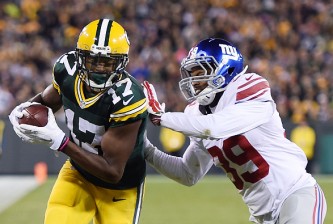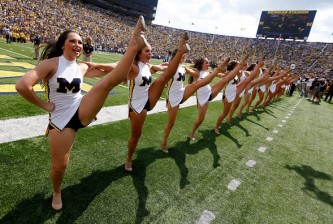Former Oakland A’s, Baltimore Oriole, New York Yankee and California Angels star Reggie Jackson will be seen on the season premiere of MLB Network’s “Studio 42 with Bob Costas” when the interview program premieres for its third season on Halloween night, October 31 at 9 p.m. ET.
Bob will talk to Reggie about his tumultuous time in New York in the late 1970’s involving late manager Billy Martin, late owner George Steinbrenner and late teammate Thurmon Munson. In addition, Reggie admits to pulling some shenanigans in the 1978 World Series to which I have long suspected.
And Reggie talks about performance enhancing drugs and how they have hurt today’s players and the sport in general. One thing about Reggie in recent years, he’s been very candid and this will be an interview that I will enjoy watching.
Here’s the preview from MLB Network.
REGGIE JACKSON FEATURED IN SEASON PREMIERE OF STUDIO 42 WITH BOB COSTAS
The Hall of Famer & Five-Time World Series Champion Talks with Costas on Monday, October 31 at 9:00 p.m. ET
Upcoming Interviews Feature Jim Rice and Wade Boggs, Tom Seaver, and Billy Crystal
Secaucus, N.J., October 27, 2011 – A new season of MLB Network’s Emmy Award-nominated series Studio 42 with Bob Costas begins on Monday, October 31 at 9:00 p.m. ET with “Mr. October,” Hall of Famer Reggie Jackson. Filmed in Cooperstown, New York during the 2011 National Baseball Hall of Fame festivities, the five-time World Series champion discusses the most memorable and controversial moments of his 21-year career, including his infamous long-standing feud with former New York Yankees manager Billy Martin, his relationship with late Yankees owner George Steinbrenner, his dominant offensive numbers in the Postseason, and his thoughts on players using performance enhancing drugs.
“Reggie is very forthcoming on his relationships with George Steinbrenner, Billy Martin and other significant baseball figures, as well as on the steroid era and its impact on the game,” said Costas. “I’ve spoken with Reggie many times over the years but I felt that this was the most interesting of our conversations.”
Additional new episodes of Studio 42 with Bob Costas will air on Monday nights throughout November and December and feature conversations with Hall of Famers including former Boston Red Sox teammates Jim Rice and Wade Boggs, former New York Mets pitcher Tom Seaver, former Atlanta Braves pitcher Phil Niekro, former Chicago Cubs Ryne Sandberg, Ferguson Jenkins and Andre Dawson, and actor Billy Crystal.
Highlights from the conversation with Jackson include:
On Billy Martin: I never had an understanding of Billy Martin. I did not accept the way he managed me. I did not accept the way he managed Ken Holtzman. I thought there was anti-Semitism there. … I couldn’t accept that. I couldn’t accept the racial epithets in reference to players like Elliott Maddox or Billy Sample. There are players that played for him that would tell you that [he made racist or anti-Semitic comments about those players]. So there was an uneasiness, a knowledge about the person that I was very uncomfortable with. … I wasn’t his choice and he wanted to show George [Steinbrenner]. So that was kind of an oddity, a craziness that I never could follow, and I struggled to have respect for Billy as a person and had it reinforced with the anti-Semitism that I witnessed.
On playing for Billy Martin and George Steinbrenner: I was 30-years old, insecure, trying to make it as a player, trying to make it as a young man in the media center of the world … When I look back upon it, the struggles that I had as a person, in trying to deal with life and my job, they were overwhelming. … I was kind of a lost puppy for a long time and struggling to survive. What the sociology was going on between the media, the city, the owner, the manager, I heard about it, but I didn’t really get it. I was really in survival mode.
On his dugout altercation with Martin in 1977: I remember people saying to me just recently, a year or so ago, be it Fran Healy, Mike Torrez and a few people, that Billy had said to a couple of players, “Watch what I do today.” That he had planned something. … I was upset that he was taking me out of the game. I wondered what he was doing. I knew Billy was a sucker puncher, so I took my glasses off. I was trying be alert. I was ready in case he would try to throw a punch. I think he was more putting on a show than anything else. … He said to me, “I should show you what I’m gonna do,” and I said, “Well, all the alcohol you’ve been drinking must be going to your brain.” … Finally Fran Healy came in to the clubhouse from the outfield and said “Reggie, get dressed and changed and go home. Because no matter what you do, whether he hits you first or you grab him, you’re gonna be wrong. So get dressed and go home. Get dressed and go home.” … [It was the] smartest thing I was ever told to do and luckily one of the smarter things I did.
On being benched during Game Five of the 1977 ALCS: I didn’t know what to do. I was fully dressed and ready to go, lineup hadn’t come out, and Fran went out of his way to say to me – I think Cosell and Jackson were doing the game – “Whatever you do, don’t sit on the bench and act mad or angry. Cheer for the team. The cameras are going to be watching you.” I never thought of any of this stuff – I never sat on the bench much. But he said, “They’re going to watch your every move, so make sure you cheer, you root and you pull for the team.” He said, “You may never know, you could hit late. If it’s close, you’re gonna hit no matter what they do.” … Without him, I don’t know what I would’ve done. … Luckily, he got through to me.
On his three home runs in Game Six of the 1977 World Series: Winning solves all the problems for the time being. … I plowed through all the difficulty and the uphill battle and the fights and the problems with Billy Martin and the difficulty I’d had with the media. … I should’ve gone to a rehab center when the season was over for mental clarity.
On his baserunning play in Game Four of the 1978 World Series: It was on purpose. … I was just kind of hoping that I would get away with it … I heard the umpires start down the road of “He’s in the baseline and he didn’t do it on purpose, and the throw hit him,” and I was just laughing all the way to the trophy room.
On his relationship with Thurman Munson: We did patch up our differences. Thurman Munson had a good heart. His wife Diana and the family, I’ve always been close to them since patching up our differences.
On his relationship with George Steinbrenner: George and I, I don’t think we were ever at “enemies.” We had our bouts, I don’t think we ever were enemies there in New York, even when I was leaving. He was listening to people who thought I couldn’t play anymore.
On being a Yankee: I’m enormously appreciative of it. The fans there have welcomed me, the Steinbrenner family has been special. During George’s last ten years, I made sure that our relationship was special and I will always treat it like Red Auerbach and Bill Russell, Tom Landry and Roger Staubach, Bill Walsh and Joe Montana, [Michael] Jordan and [Phil] Jackson, and I will consider myself as “George Steinbrenner and Reggie Jackson,” I’ll be very proud of that relationship forever.
On players who use performance enhancing drugs: I think baseball fans recognize the players that hit their 550 or 500 home runs, or maybe 6-700 without PEDs, and I do think that the true fan separates the seven or eight that were accused or proven that they took PEDs. … I went “Wow” when I saw [Mark] McGwire and [Sammy] Sosa in the Home Run Derbies, and [Jose] Canseco of course. But I knew why. The sad part of that additionally too is when you see the great players like Prince Fielder and great players like [Albert] Pujols, it makes you unfairly question [them].
On whether he knew of any players using PEDs during his career: I knew that there were players using steroids. … When Canseco came in he talked about steroid use fairly openly and when I was playing with Mark McGwire, he was not suspect, [he] didn’t have the size, and he was not a steroid user. McGwire, Bonds, Clemens – these guys were great players without PEDs. Would Canseco have his 460 or 470 home runs without? Probably not. McGwire hits 480 or 500. Bonds hits 600. Clemens wins 320. So those are the tragedies and it’s changed them as people.
I look forward to seeing this and I hope you will as well.






















